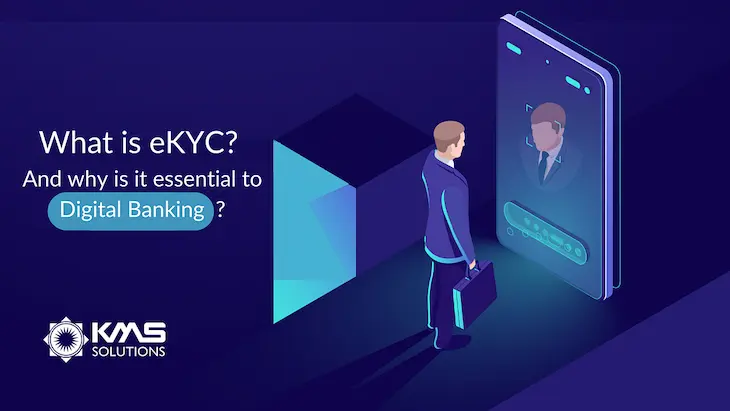In today’s economic landscape of digital transformation, best-case customer experience is critical to business success – and, customer-centricity is indeed the key factor for competitive advantage. This is especially true for organizations in the sectors of BFSI (Banking, Financial Services, and Insurance), where the digital banking model is increasingly receiving mainstream adoption.
As a result, many banks are investing significantly in digitizing and optimizing their operational processes, including customer onboarding, with the ultimate aim of differentiating and leading the market.
Why is customer onboarding important for the digital banking model?
In its simplest sense, onboarding can be defined as the process that users undergo when they begin their journey becoming a bank or financial institution’s customer.
A best-case onboarding experience is essential to help banks win new customers as this is the very first stage that customers interact with banks. This is also an opportunity for banks to nurture the relationship and further business with consumers.
When it comes to BFSI, a typical onboarding involves a number of legal standards that is specific to the banking sector, such as KYC (Know-Your-Customer), AML (Anti-money-laundering) – requiring banks and financial institutions to verify their customer’s identity against the available database of records and watchlists, before accounts can be opened and approved to conduct transactions in the systems.
Drawbacks of the traditional KYC process
The traditional KYC process often takes time and is complicated due to the involvement of various departments such as legal, and credit assessments, and so on. Currently, many banks still require customers to be physically present at the bank branches for account opening. This inconvenience could deter many opportunities for banks and financial institutions to win new customers, especially during the current time of the Covid-19 Pandemic, where the majority of business is shifting to digital.
Additionally, this might also negatively impact the relationship between banks and customers, right at the beginning, making traditional banks at risk of competition where customers leave for the new digital banks or Fintech startups who offer end-to-end digitally automated services.
What is eKYC?
Being able to digitize the onboarding process, including KYC, is of utmost importance to businesses in the BFSI sector.
So what is eKYC? eKYC describes the solution of leveraging innovative technology such as Artificial Intelligence (e.g. OCR – Optical Character Recognition, Facial Recognition, and live-check, etc.) and Machine Learning to digitize the manual KYC process, verifying customer’s identity electronically, in a paperless way.
Digital banks that know how to apply cutting-edge solutions such as eKYC will become more agile and can provide customers with an instantaneous, and seamless onboarding experience – achieving a big advantage and setting the stage for further growth, at the same time still meeting financial regulations.
Who else needs eKYC?
In addition to Banking organizations, other businesses that fall into the category of “regulated sector” also need KYC, and thus eKYC. Those entities are required to meet the Anti-Money Laundering (AML) regulations as per the Nation Local Authority’s directives.
These include:
- Fintech start-ups such as Mobile E-wallet services, Crypto-currency exchange platforms, etc.
- Foreign exchange broker
- Insurance companies
Innovation in fintech solutions also introduces new challenges in financial regulations, thus, requiring banks and financial institutions to change and keep up-to-date with the new standards, at the same time evolving their process via digitization and automation.
Also, the number of Fintech start-ups is still on the rise, presenting a real challenge for many traditional banks and financial institutions.
In order to effectively compete, those traditional organizations need to optimize their current onboarding processes by incorporating innovative technology solutions like eKYC across their businesses.
Benefits of Digital Onboarding with eKYC solution
eKYC helps banks reduce the time completing their customer’s due diligence processes, unblocking unnecessary delays of the outdated manual KYC model, and ensuring compliance with regulations.
More importantly, compared to human input, innovative technologies such as Artificial Intelligence & Machine Learning can automate many aspects of KYC, allowing multi-eKYC checks to be performed simultaneously. This eKYC process can also be operated 24/7, 365 days, automatically flag any negative, false media and immediately report to compliance departments when such activity occurs.
Not only can an eKYC solution help digital banks and insurance firms combat and prevent fraud, but it can also help streamline the onboarding process – so that opening an account and transacting can be quick, smooth, and painless.
See more: These 8 features are revolutionizing eKYC
Leveraging innovative technology and eKYC solution
Even though digital transformation in the banking sector is on the rise, many banks, financial institutions, and insurance firms still operate on legacy systems that require intensive manual input by human staff.
Some BFSI organizations holding multiple entities and operating, offering various lines of financial services, could require repeated KYC for the same customer (e.g. one customer applying for two different services of account opening, and credit borrowing). Thus, people who find initial onboarding that is too complicated and/or time-consuming may feel frustrated and become unwilling to conduct further business after the initial account opening.
By partnering with an IT solutions provider who is experienced in developing banking software solutions, BFSI organizations can simplify their KYC process, and streamline onboarding collectively, provide instantaneous on-boarding services to their customers, improve frauds detection and accelerate their digital banking.
See more: Top eKYC solutions providers, ranged by unique selling points
Choosing the right eKYC solution
On the whole, digital banks, fintech startups, and other businesses in the BFSI sector should opt for an easy-to-use software solution that can improve the onboarding experience in the self-service channels as well as in person, enable end-consumers to easily scan their ID using mobile-first technology, performing live checks together with facial recognition, making accounts opening quicker and more convenient. In addition to being easy-to-use, the chosen eKYC solution should also be scalable, and flexible in deployment (e.g. on-premise eKYC to ensure compliance with security and privacy laws) to meet with the continuous changing of financial regulations.
To know what questions to ask your eKYC solution vendor, read our paper on “Strategies for Choosing eKYC Solutions”










